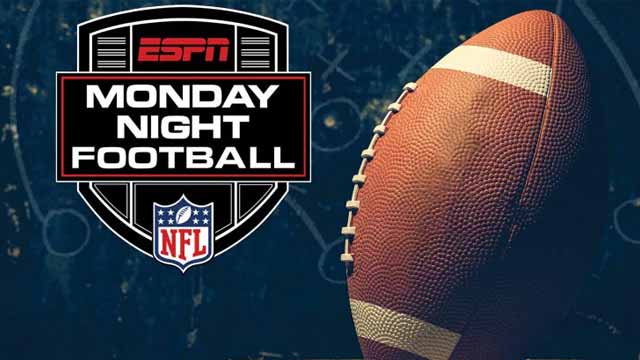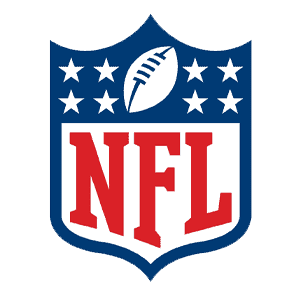headlines
Offshore Gambling Sites Side-Step Legal Challenges Between States and Native American Tribes

According to a recent op-ed released by the Off Shore Gaming Association, Native American gambling operators are unfairly handcuffed by various anti-gambling laws, including the Federal Wire Act.
The Wire Act came into existence in 1961 and was originally intended to prevent mafia and other organized crime organizations from using wire communications (telephone, telegraph, etc) to take bets on sporting events. At the time illegal sports betting operations were a common form of corruption and money laundering.
But since then, the gambling and sports betting industry has largely legitimized itself both domestically and offshore. U.S. Politicians however used the Wire Act to target legal offshore gambling companies like NETeller and BetonSports.
The law specifically targets the “wire communications” and several lawsuits have equivocated on whether that definition applies to internet and other forms of wireless communication, as well as whether that definition includes casino games and poker in conjunction with sports.
The Department of Justice ruled in 2011 that the Wire Act does apply to internet as a form of wire communications, but that this law applies solely to sports betting. The Wire Act and the UIGEA have had negative impacts on Native American Tribes attempting to offer legal online sports betting or online gambling.
The main restrictions lie in the fact that many states have used these laws to make Native American online gambling operations available only on tribal land. But other states, like Michigan, agreed to allow Tribes to offer sports betting and online gambling off their reserves as long as they abide by commercial regulations, meaning they will be subject to taxation that Native casinos usually are protected from paying.
In other states, like New York, Iowa, and Tennessee, state legislators appear to expect tribal casinos to stick the original agreements of their compacts. States like Florida and California, both with large Native American business presences, will undergo similar legal challenges in reference to online gambling and sports betting.
Some industry analysts hinted that the Wire Act will come under scrutiny in the first term of the Biden administration, and will seek to either amend or repeal the act entirely to settle legal battles between states and Tribal gambling operators.
The offshore gambling industry has passed by unscathed in these domestic issues since they operate outside of US jurisdiction and are not subject to the same restrictions. Offshore gambling sites offering casino games and online sports betting provide a great alternative to domestic operators that are caught up in old and unnecessary laws.
Sources:
headlines
Monday Night Football Odds From Offshore Sportsbook Sites

 The 2024-25 NFL season is in full swing, and betting odds for this Monday Night Football contest are already posted.
The 2024-25 NFL season is in full swing, and betting odds for this Monday Night Football contest are already posted.
This Monday will host two NFL games featuring an NFC vs. AFC team: the Ravens vs. the Buccaneers and the Chargers vs. the Cardinals.
NFL betting odds are available for games and games that will be played later this week. Game line odds are often available a few days before the match, whereas futures and props are available all year.
Below, we will discuss the game line odds for tonight’s matchups and discuss why the odds favor each team.
NFL Game Lines
NFL game lines are probably the most popular sportsbook odds in existence. They offer three ways to bet on the game. The money line or win is the most straightforward bet, as it is essentially picking who will win the contest.
Below, you will see that the Ravens and Chargers are favorites, as their win and spread line odds offer little value. However, if the Bucs or the Cardinals can win tonight, some good money could be made if the bet hits.
Ravens vs. Buccaneers
Both the Ravens and Bucs are looking towards the NFL postseason with current winning records. Ravens QB Lamar Jackson, alongside RB Derrick Henry, has been an almost unstoppable force on the ground attack. Most critics believe the Buccaneers have been playing above their expected ability and have relied heavily on the hot hand of quarterback Baker Mayfield, who has played well this season.
Odds from trusted offshore sportsbooks believe that the Buc’s defense will struggle against the Raven’s ground attack. With Lamar’s ability to create plays, it will be a tough fight, win or lose.
Baltimore Ravens vs. Tampa Bay Buccaneers
- Spread: -3.5 (-115), +3.5 (-105)
- Win: -200, +170
- Total: O50.0 (-115), U50.0 (-105)
Chargers vs. Cardinals
Both the Chargers and the Cardinals have struggled this year. The Chargers are currently 3-2; a loss would take them to .500 for the season. The Cardinals are currently 2-4, and a win could set them up for a late-season playoff run.
Odds indicate the Chargers should win this competition, but anything could happen on the field.
Los Angeles Chargers vs. Arizona Cardinals
- Spread: -1.0 (-115), +1.0 (-105)
- Win: -125, +105
- Total: O44.0 (-115), U44.0 (-105)
headlines
New Zealand Pursues Online Casinos To Combat Offshore Betting Sites

![]() The New Zealand government has taken the initiative to pursue legal online casinos, and many people believe this is to combat offshore betting sites.
The New Zealand government has taken the initiative to pursue legal online casinos, and many people believe this is to combat offshore betting sites.
New Zealand’s Minister of Internal Affairs, Hon. Brooke van Velden, confirmed that the country is looking at a regulatory framework to issue online iGaming licenses by 2026. However, license holders will be subject to sustainability checks, taxes on revenue, and to provide customer protections. There will also only be a select few license holders selected if new legislation passes into law.
Currently, the only online gambling provided by the country is sports and parimutuel gambling. However, Tabcorp is the sole beneficiary as it is the only company in the country with an online sports betting license.
The Internal Affairs Department, led by Hon. Brooke van Velden, regulates all forms of gambling in the country.
Domestic New Zealand Casinos
SkyCity Entertainment Group is one of the few companies in New Zealand with a domestic casino license. It owns resorts in three cities: Auckland, Hamilton, and Queenstown. Earnings reports confirmed that SkyCity generated retail gross gaming revenue of USD 229 million for 2023.
Full NZ Casino List
- SkyCity Auckland – 1800+ gaming machines, 150 gaming tables.
- Christchurch Casino – 500 gaming machines, 36 gaming tables.
- SkyCity Hamilton – 339 gaming machines, 23 gaming tables.
- Dunedin Casino – 180 gaming machines, 12 gaming tables.
- SkyCity Queenstown – 86 gaming machines, 12 gaming tables.
Offshore Casinos In New Zealand
Offshore betting sites have offered their services to New Zealand since the early 2000s and have become the most trusted source for many gamblers. While they are legal outside of the country, New Zealand itself has not authorized the use of these sites. However, the government has yet to forbid offshore gaming sites successfully.
Online, you will find numerous casino games that offer real money payouts, including blackjack gambling, roulette, slots, video poker, and more. In addition to a more extensive selection of games, online casinos also offer digital currency banking options, player-specific bonus options, progressive jackpot slots, and sometimes live dealer games.
Are Offshore Betting Sites Safe?
Licensed offshore betting sites are generally safe if a trusted gaming agency regulates them. Offshore regulators are often government agencies tasked with taxing and enforcing regulations to assure players are secure and that the games are fair.
To ensure that online casino sites are legit, check for licensing and compliance records that indicate they operate with oversight. Our online reviews will help you discover our recommended sites for 2024.
headlines
MGM Resorts CEO Confirms Abu Dhabi License Pursuit

 MGM Resorts CEO Bill Hornbuckle has confirmed that the Vegas-based company is seeking a casino license in Abu Dhabi.
MGM Resorts CEO Bill Hornbuckle has confirmed that the Vegas-based company is seeking a casino license in Abu Dhabi.
At a recent Skift Global Forum, Hornbuckle stated, “Yes, we have applied. We’ve done it in Abu Dhabi,” before expressing optimism about obtaining the license. Hornbuckle then explained that the federal government would have the final say, as each emirate would cast a vote to grant or deny casino operations.
MGM owns and operates 31 properties globally, including resorts in the USA, China, and Macau. They are also building a non-gaming resort in Dubai featuring three hotel towers and over 1,500 rooms. The resort is reported to mirror their properties in Vegas, such as the MGM Grand and the Bellagio.
MGM also confirmed a Dubai Sphere at the Global Forum, which will rival the new Las Vegas Sphere, which has already gained global recognition in its short existence.
After a 2006 non-gaming project failed to materialize, the company veered away from Abu Dhabi. Hornbuckle now says that MGM will not venture into Abu Dhabi without a casino license: “That’s the business MGM is in.”
Are Offshore Casinos Safe?
Yes, offshore casinos are generally safe, whether in person or online. In-person, each casino typically has a security team that ensures patrons are safe when coming to and from the casino. However, sometimes criminals outsmart security, and casinos are known locations for some sketchy characters.
With offshore online casinos, you must ensure the site you are playing is legit. The best way to determine if a site is safe and fair to play is to check online reviews, verify the site is licensed, and verify that the community trusts the jurisdiction. Some of the biggest names in the game, like MGM and Caesars, also have offshore licensing for their properties.
Is Gambling Legal In Abu Dhabi?
No, gambling, either in person or online, is illegal and punishable by up to 2 years in prison in Abu Dhabi. There are currently no casinos in operation, but MGM hopes to change that, having recently applied for a casino license.
The MGM is currently working on its most ambitious Dubai project, which will host numerous hotel towers, a sphere, dining, and shopping. However, there are no plans for a casino at the Dubai location. Those plans would likely change if the company is granted the casino license they recently applied for.
Are Online Casinos Legal In The U.S.?
In the United States, there are no federal gambling laws that make online casino gambling illegal. Individual states have the power to enact their rules, but many states have failed to pass legislation concerning online ventures. U.S. gambling states include all continental states, D.C., Hawaii, Alaska, and Puerto Rico to various degrees.
-

 headlines5 years ago
headlines5 years agoBitcoin Means Smooth Sailing For Offshore Sports Betting Sites
-

 headlines5 years ago
headlines5 years ago‘Game of Thrones’ bettors win big at offshore betting sites
-

 headlines5 years ago
headlines5 years agoHow To Know If An Offshore Gambling Site Can Be Trusted
-

 headlines6 years ago
headlines6 years agoWhy Offshore Betting Sites Will Not Be Affected By New USA Gambling Laws
-

 headlines5 years ago
headlines5 years agoOffshore is Still the Only Political Betting Option for USA Residents
-

 headlines7 years ago
headlines7 years agoUS Sports Betting Market Looking At Expansion
-

 headlines7 years ago
headlines7 years agoHow A Reversal On NJ Sports Betting Case Could Affect Nevada Sportsbook Industry
-

 headlines4 years ago
headlines4 years agoMay Madness: Offshore Betting Giant Bovada Debuts NFL Sim Classic Tournament










